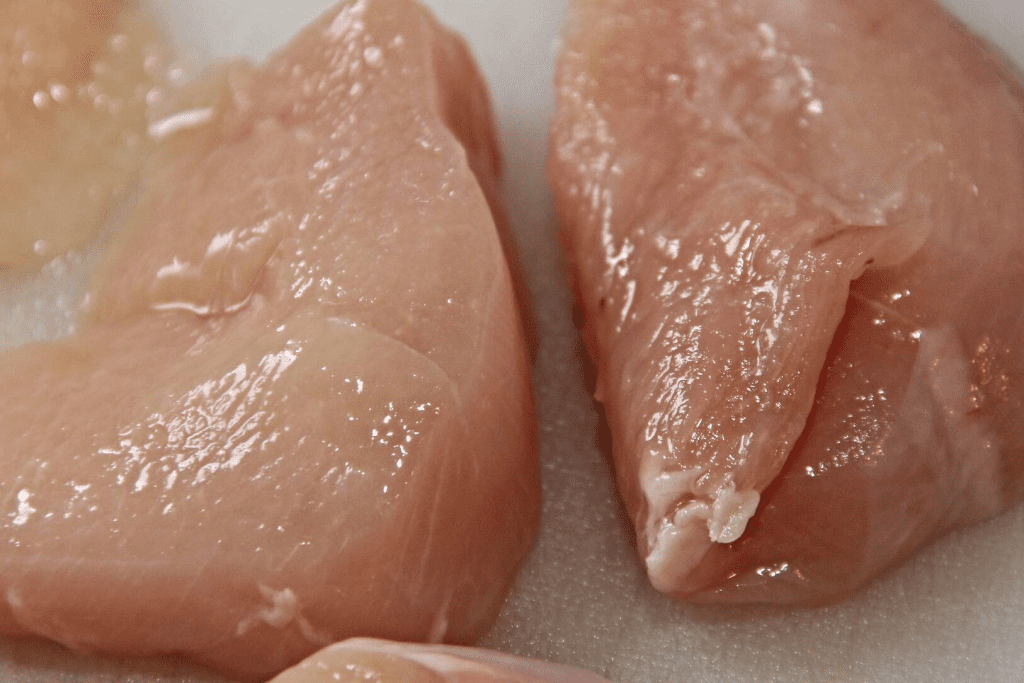When it comes to handling raw chicken, debates can get heated in the kitchen. If your husband skips rinsing the chicken straight out of the plastic bag and insists it’s perfectly fine, you might be wondering: Is that actually safe? Let’s dive into the facts, myths, and expert advice to settle this debate once and for all.
Why Food Safety Matters in Chicken Prep

Raw chicken is notorious for carrying harmful bacteria like Salmonella and Campylobacter, both of which can cause serious foodborne illnesses. Proper handling is key to avoiding contamination and ensuring safe, healthy meals. But does rinsing or not rinsing make a difference?
The Case Against Washing Raw Chicken
If you grew up watching your family rinse chicken, you might believe it’s the first step toward cleanliness. However, research says otherwise. Washing chicken under running water doesn’t eliminate bacteria. In fact, it can make things worse by spreading those bacteria through water splashes onto your sink, countertops, and nearby utensils.
Think of it like trying to clean mud off a dog in a small bathroom—the mess doesn’t just stay in one place!
The Real Danger: Cross-Contamination
Cross-contamination is the biggest risk when washing chicken. Even a quick rinse can aerosolize bacteria, landing them on your hands, clothes, or surrounding surfaces. According to the Centers for Disease Control and Prevention (CDC), once bacteria spread, the chances of foodborne illness skyrocket unless every contaminated surface is disinfected.
Does Not Rinsing Chicken Mean It’s Safe?
Here’s the kicker: The absence of rinsing doesn’t automatically make the chicken safe. The true safety factor lies in cooking. Bacteria on raw poultry are destroyed when it’s cooked to an internal temperature of 165°F (75°C). Use a meat thermometer to confirm this; guessing by appearance isn’t enough.
Skipping the rinse step can be safer overall, as long as you handle the chicken properly and cook it thoroughly.
Common Misconceptions About Chicken Prep

- “Rinsing washes away germs.”
Germs aren’t rinsed away; they’re splashed onto your kitchen. Cooking is what eliminates bacteria. - “If it looks clean, it’s safe.”
Bacteria are invisible. Even the cleanest-looking chicken can harbor harmful pathogens. - “Rinsing removes slime or residue.”
Any surface residue will break down during cooking. Rinsing isn’t necessary.
What the Experts Say
The USDA and food safety experts are clear: Do not rinse raw chicken. Instead, focus on maintaining clean hands, utensils, and workspaces. Here’s their recommended approach:
- Unpack chicken carefully. Avoid touching the plastic bag to other surfaces.
- Dispose of packaging immediately. This minimizes contamination.
- Sanitize everything. After handling raw chicken, wash your hands and sanitize cutting boards, knives, and counters.
- Cook to the right temperature. This is your best defense against harmful bacteria.
Rinsing vs. Not Rinsing: A Side-by-Side Comparison
| Factor | Rinsing Chicken | Not Rinsing Chicken |
|---|---|---|
| Bacteria Removal | Ineffective | Bacteria remain, but cooking eliminates them. |
| Cross-Contamination | High risk | Lower risk when handled carefully. |
| Kitchen Cleanliness | Compromised | Easier to maintain. |
Breaking Generational Habits
Many people rinse chicken because it’s a tradition handed down by parents or grandparents. But as food safety science evolves, it’s okay to change those habits. Think of it like upgrading from old flip phones to smartphones—you’re just adapting to better, safer technology.
Real-Life Scenarios: When It Goes Wrong
Picture this: Someone rinses chicken in the sink, and bacteria splashes onto a nearby salad bowl. Even after the chicken is cooked, the bacteria on the bowl remains, leading to foodborne illness. Stories like these highlight why experts emphasize skipping the rinse step and focusing on thorough cooking instead.
Practical Tips for Safe Chicken Handling

- Use separate cutting boards. One for raw chicken, another for veggies or other foods.
- Wash hands thoroughly. Scrub with soap for at least 20 seconds after touching raw chicken.
- Clean as you go. Sanitize all surfaces after prep.
- Double-check cooking temps. Invest in a good meat thermometer.
Conclusion: Why Science Says Skip the Rinse
Your husband might be right this time—washing raw chicken is unnecessary and can even increase risks in your kitchen. The key to safe, delicious chicken lies in cooking it properly and keeping your kitchen clean. By following science-backed guidelines, you can put this debate to rest and enjoy worry-free meals together.


